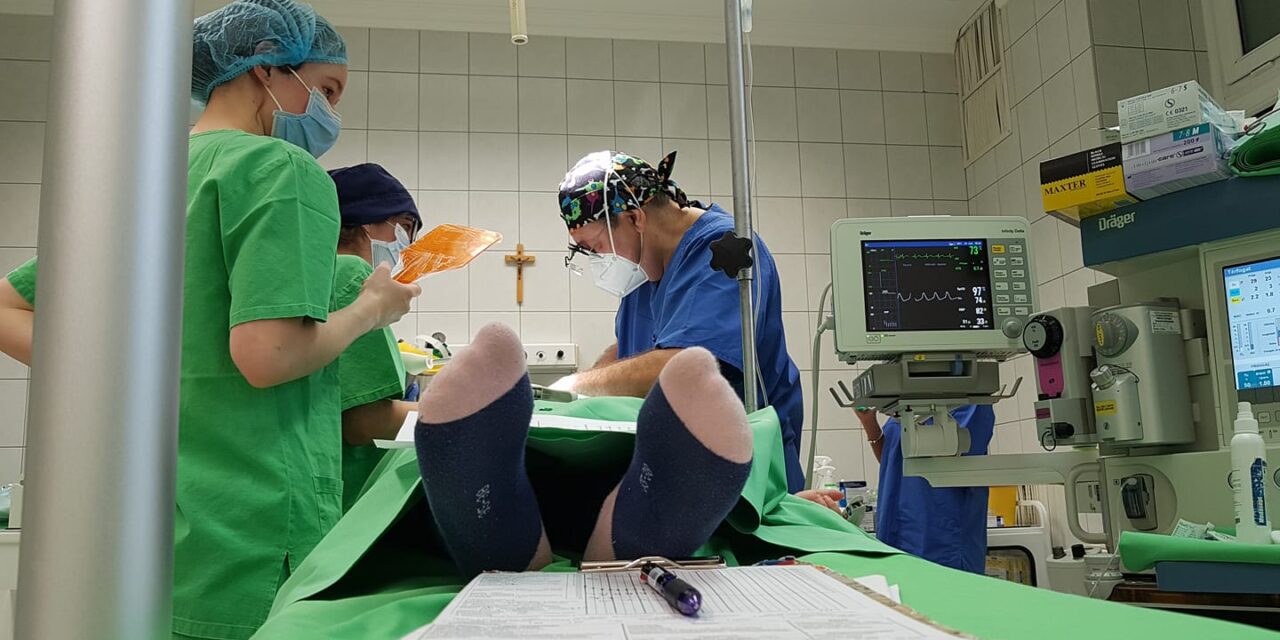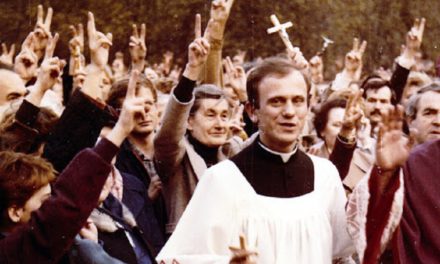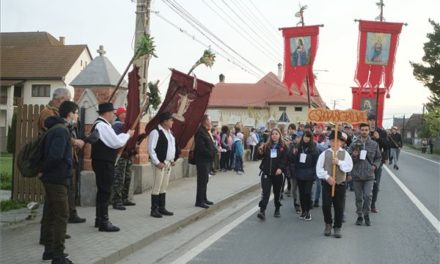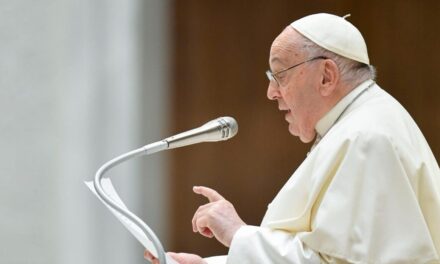"Faith is a resource that puts healing in a completely different dimension," says Nóra Tamásné Bese, director of social relations and communication at Bethesda Children's Hospital. the I Am With You podcast, families who believe have resources, and the same is true for doctors who heal sick children.
"With my profession, I want to build a culture of the fact that together we can create values, both in healing, in faith, and in the community, which go far beyond ordinary life and work. The walls of individual envelopes must be broken through," he said.
Nóra Bese's childhood was not ideal, but she was converted as a young person, right in the midst of an extremely difficult crisis - this is where the desire for community and the sense of calling come from. "I received faith as an answer in a situation when everything in me was questioned and I could not find the meaning of life. From here on
faith was a constantly inspiring and empowering reality for me"
- He told.
What does a conversion change?
Bese also affected Nóra's personality.
"Basically, I was an introverted, lonely, sad teenager. The conversion opened up new perspectives on how to live for others, and I stood up to speak in front of up to 200 people, if necessary, because I knew that I would get the strength to do so. From then on, there was no question about where the future was."
Although she did not receive good family role models, she tried to make the best of herself as a mother.
"If someone looks from the outside, you might think that career is important in my life, but in fact I experience it all as a service, and my family is a priority," he emphasized.
He married young, at 21, which he says would have been quagmire without faith. "At the age of twenty-one, to say that we're dead, we'd certainly not have dared to make such a decision without faith. But many people supported me on this journey, and I'm glad that our life turned out this way." At the age of twenty-two, she became a mother, studied alongside him at the university and managed the household.
"I experienced that I receive strength and wisdom from above for my decisions. I matured a lot during this period, and my husband and I became one," she said.
Since then, he has four degrees: French, Portuguese, communication and theology, and he is currently completing a master's degree. "The service brought me to be demanding in what I do. I graduated in theology, for example, because I led theology groups." However, leadership is also decisive in other areas in Nóra Bese's life - however, she always viewed this as a service.
"It was always obvious to me that leadership is never about power or about imposing my own will on other people, but is about a goal, a service."
She came close to Bethesda Children's Hospital when her fourth child's life was saved there. As a parent, this is a vulnerable state where information, communication, and faith confirmation matter a lot.
"I experienced this first from the parenting side, then when my youngest child became a kindergartener, I was called and I accepted the job. In the person of György Velkey, I got to know a leader who knows where to take this community, and from him I also got the confidence to build a communication culture that has never existed before."
Bethesda Children's Hospital is maintained by the Reformed Church - but what does this Christian maintenance manifest itself in? "This can be measured in the community's attitude and spirituality, which primarily means people-centeredness, respect for each other - of course this should be fundamental, but unfortunately it is not realized everywhere in the healthcare sector." In the hospital, so-called community healing takes place, which means that not only the doctor heals, but every sick child is surrounded by a team, which may include, for example, the internist, the psychologist, the physiotherapist. On the other hand
the whole family is surrounded, because if a child gets sick, it affects the whole family.
"If someone wants to pray for their child, if they want to get answers to their questions from a priest, or if they want to attend a church service, that is also possible," said the communications director, who said that in such a vulnerable situation, more people are receptive to faith. Often, however, it's really just personal presence that can give people the most. There are many religious and non-religious workers in the hospital, but everyone is open to the aforementioned community approach.
Faith gives tremendous strength to doctors, parents, and sick children.
"It is of great importance if we are able to live through miraculous healings, tragedies and struggles, nourished by faith, such as when the family sees no hope for the future due to a serious accident, or when a child has to live with a chronic illness"
- said Nóra Bese.
Processing the fact that children suffer and are in pain is not easy at all. "On the one hand, this constantly confronts us with our own interpretation of existence, and on the other hand, seeing the strength in the children that drives them towards healing is quite astonishing. In any case, it makes me grateful for how many things I have that I take for granted, but which in reality are not given to many families - so that their children can walk, for example, or make adulthood worthwhile. You can learn a lot of wisdom, for example, from parents who raise a disabled child, being by their side also shapes my worldview.
I experience that every gift and everything starts from God's love"
he explained.
Of course, the question arises as to how all this can be experienced in a pediatric intensive care unit. Doesn't the often-asked question come up at this time, why does God allow it?
"When a person reaches the deepest point or the most impossible tragedy, somehow the opposite pole is much more illuminated. I myself saw in the midst of my sufferings that there are times when human methods do not help, only the infinite, loving God is the solution"
he emphasized. He added that it is completely normal for a parent to first experience denial and grief as to why my child became ill, but then he can start on the path of understanding - he himself accompanies many such stories.
At Bethesda Children's Hospital, they actually heal not only the children, but also the souls of the parents. "For a child, the condition of his parent, how he collapses or sees a way out of a situation is extremely important. If only because the parent is always by the child's side," the communications director pointed out. Because of her profession and her own experiences, Nóra Bese already thinks differently about suffering than before.
"What we learned about suffering in theology is a flesh-and-blood reality here.
But it must also be taken into account that we treat many children who would have died at the age of 1 or 2 just a decade or two ago. I see that with the development of medical science, we help a dignified life, but it is not our job to decide on questions that mark the beginning and end of life."
Service can quickly become an addiction, and you have to face it. "Since I don't want to burn out, nor do I want my children to barely see me, this requires a constant confrontation with myself. It's a challenge for me to put my phone on airplane mode after 8pm, but I have to. Sport - in my case, cross-country running - and prayer always help me gain strength," said Nóra Bese Tamásné.
Featured image: bethesda.hu












